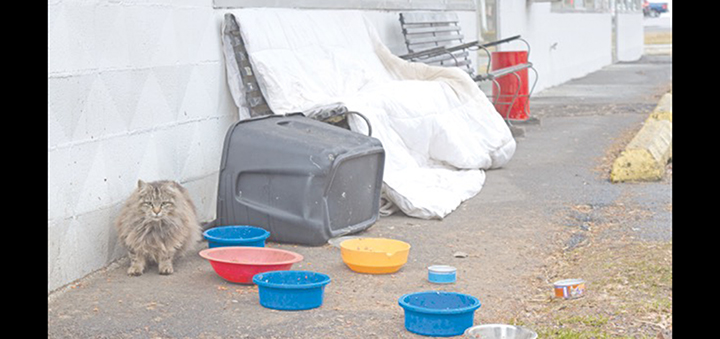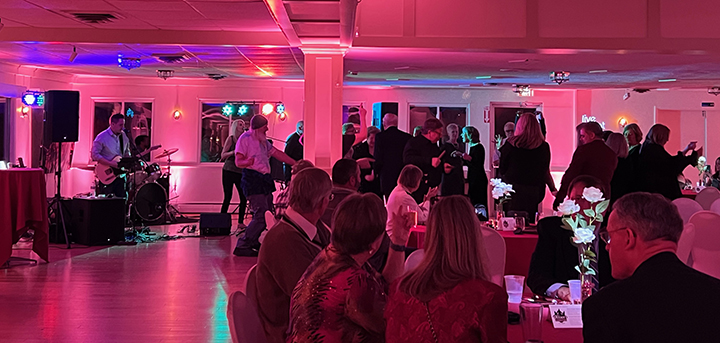Public backlash over proposed animal ordinance likely to force Norwich to seek other options
Arrow Laundry & Dry Cleaning at 68 E Main Street is one of the main concerns in controlling the local stray cat population in the City of Norwich. The business bulk feeds the animals on a regular basis. (Tyler Murphy photo)
NORWICH – Will Norwich police soon be stripping tickets for people feeding stray dogs and cats?
Maybe, but probably not.
A public hearing on the issue will be held at 6:30 p.m. on Tuesday in the Norwich City courtroom.
City officials received a tremendous amount of public response in the last few days, with a number of local and far flung citizens making their discontent obvious via email, Facebook and phone calls.
Some board members even had their city contact and Facebook information passed between activist animal groups on social media platforms across the country. The result was hundreds of responses and messages being sent to officials in a few days.
The proposal made this week is to consider implementing a law that is primarily aimed at banning the feeding of stray cats. Though as written, the law could apply to all animals, even bird feeders.
The proposed law states, “No person shall dispense, feed, or otherwise make available to any species of wildlife or cats, either on such person’s property or on the property of another or of the City, any type or amount of food in a manner that: 1) Creates an unclean, unsafe, or unsanitary condition. 2) Results in the accumulation of feces. 3) Attracts other wild life, vermin or pests.”
The entire city council and mayor helped form the law, which was then sponsored by Ward 6 Alderman Robert Jeffery, who is an adopted-pet owner himself.
Comments
Leave a Reply
Please Login to post a comment.









This is a totally inhumane solution to the problem. Stop taking the easy way out and come up with a real solution. Norwich is truly turning into a shit hole town.